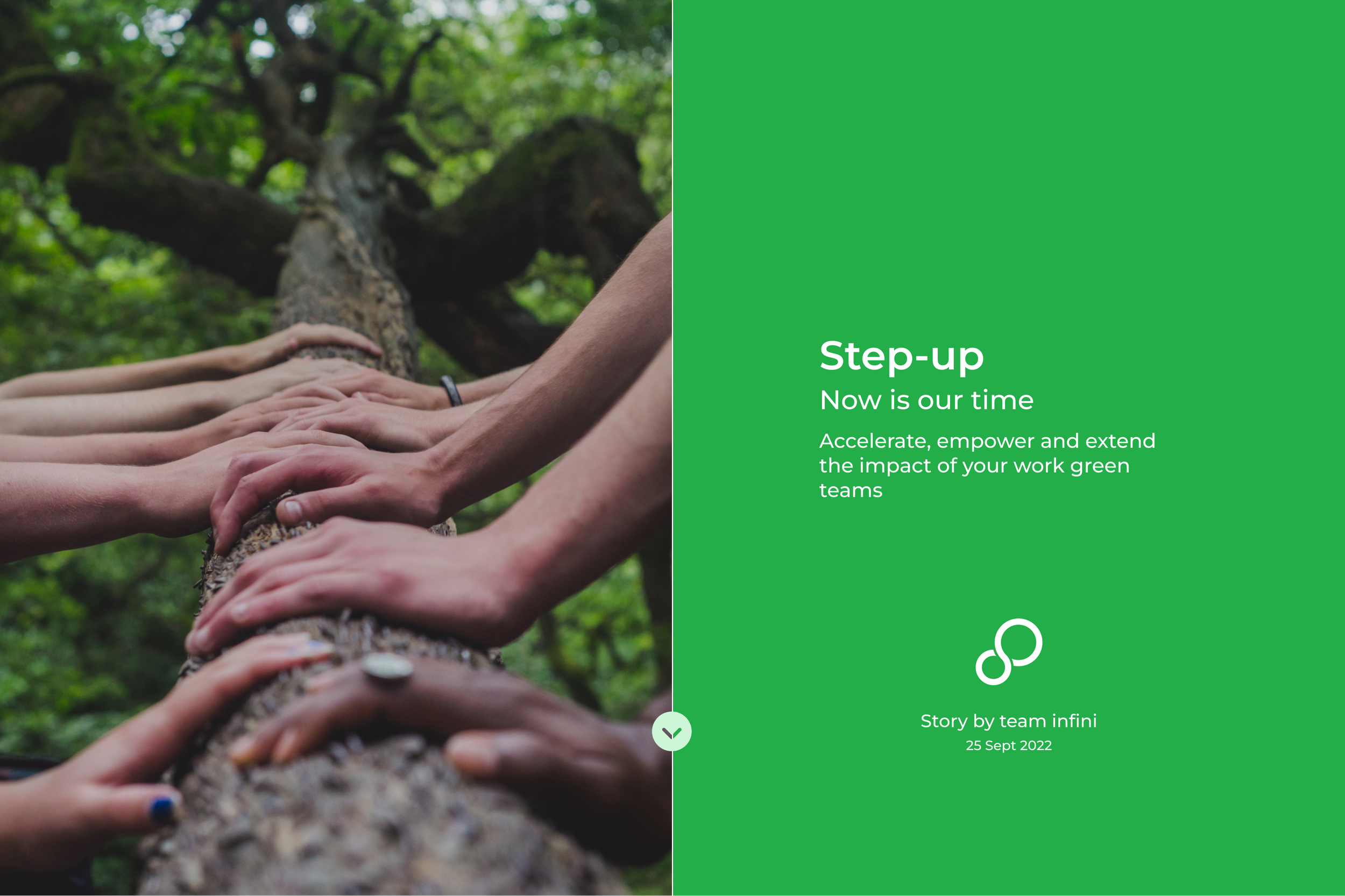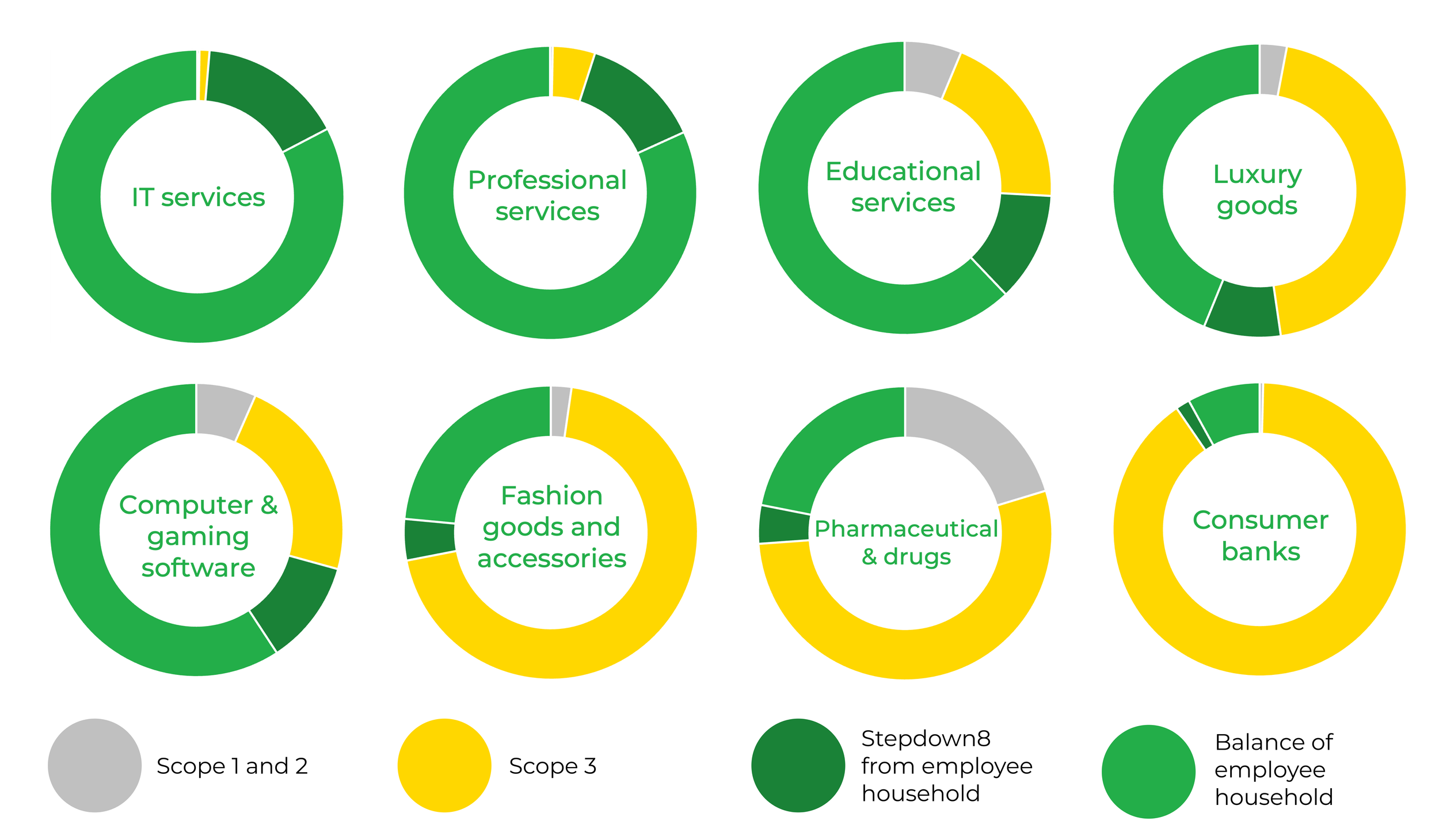
Climate transition is everyone’s responsibility.
Every person and organisation have a role to turn positive climate ambition into climate action and reality.
Headlines are often dedicated to those markets with higher absolute carbon footprints or a greater proportion or levels of scope 1 and 2 “direct” emissions to total emissions, industries like oil & gas, cement, chemicals, electricity, and transport. Across these markets the average scope 3 “indirect” footprint is 5 to 12 times that of the organisation’s direct carbon footprint.
Measuring Scope 3 “indirect” emissions across any organisation’s value chain is challenging and complex. Experience is showing us all that this is often a multi-year exercise, from actioning data gathering and analysis, aligning stakeholders, developing a strategic plan and achieving tangible action and results.
Beyond including the carbon impact of employees’ commute to and from work and business related travel, employers are not always embracing employees in this effort to maximise overall carbon reduction initiatives.
Employees typically want to understand and see that their employer is sustainable. Many more employees are motivated to make a climate positive difference where they can. Work green teams have emerged in response to this voluntary action to reduce work-related carbon emissions.
Why can’t organisations of all sizes and shapes step up to do more beyond net zero?
Think about the average 2 to 3 person household’s carbon footprint that is at least 24,000 kg CO2e per year and more likely in excess of 69,000 kg CO2e per year. The carbon footprint we refer to as the “beyond value chain team impact”.
In many service orientated, education or retail organisations this impact can be 12 to 20 times the organisation’s direct carbon footprint. In professional services firms like banking, insurance, technology, accounting, law, engineering, and management consulting, that team impact can be over 100 times, and as much as 400 times, its direct emissions.
To illustrate this untapped potential more visibly, we’ve identified a representative organisation from eight of 80 infini’s shop sectors. Focusing on IT services, professional services, educational services, computer & gaming software, luxury goods, fashion goods and accessories, pharmaceuticals & drugs, and consumer banking. These eight organisations operate globally, have sales of €270 billion, employ 1.7 million people, and report a 5 billion kg direct carbon footprint, with an average 11.4 times that in indirect scope 3 emissions.
As illustrated, the scope 1 and 2 (silver) and scope 3 (gold) proportions vary across each these organisations and markets. We agree each should progress towards net zero as currently planned. Could each step-up to do more? The darker emerald and lighter green bars are the indicative beyond value chain team impacts for those organisations, highlighting the Stepdown8 reduction potentials of that total carbon footprint as the darker emerald bar.
Conservatively, the average beyond value chain team impact is a further 15 times each organisation’s direct emissions.
A 400 times untapped potential of the net zero target for the IT services organisation.
For the educational services organisation, with a 12 times impact, this analysis has been limited to that university’s staff and employees only. Like many universities, that organisation reports 9 times those employee numbers in additional students and alumni. Including that audience leverages that potential positive impact to at least 120 times, all from greater awareness.
In that small group adopting a campaign to Stepdown8, being at least an 8 kg daily per person reduction, could shrink our global carbon footprint by over 12 billion kg of carbon. That is 2.5 times the benefits associated with a strict net zero focus on scope 1 and 2 emissions only.
Leveraging engaged employees, their families, customers, and their networks can provide some powerful untapped, immediate, climate positive outcomes. For many of these organisations that have set net zero aspirations by 2030, the great untapped potential from motivating broader teams to action and affect now provides much earlier and greater carbon reductions.
We believe that sharing experiences, empowering, and educating employees around carbon knowledge and understanding - similar to the lessons from the safety culture revolution - provides clear, powerful and as yet untapped climate transition benefits.
For clarity, we are not advocating regulation. Rather reward and recognition and greater engagement through voluntary adoption. Guidelines and regulations focusing on organisational scope 1, 2 and 3 emissions should continue to be harmonised, mandated, and actioned as quickly as possible. If nothing else, but to motivate greater achievements across more organisations that have yet to implement an actionable climate transition plan.
Step-up to Stepdown8
Step-up to personalise your carbon footprint action plan today to Stepdown8.
Step-up to encourage an enhanced sustainability culture with the organisations you deal with, whether that is your employer, your school or university, or your local sporting club.
Step-up to embark on a Stepdown8 campaign as part of the infini one hundred.

